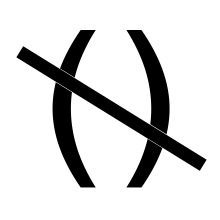I ran into the following Scala pitfall when refactoring some code recently.
The problem
Futures sometimes execute in expected order, other times not. Testing with Await.result(f) didn’t block. The world was no longer deterministic. Why? Unit.
The code
This was the code before:
def makeFut1():Future[Int] = Future.successful( 1 + 1)
def makeFut2():Future[String] = Future.successful( "foo" + "bar" )
def doSideEffect(a:Int,b:String):Unit = println(s"[$a] [$b]")
def doWork():Future[Unit] =
for {
futA <- makeFut1()
futB <- makeFut2()
} yield doSideEffect(futA,futB)
Alas synchronous doSideEffect(...) method was refactored to be async, becoming:
def doSideEffect(a:Int,b:String):Unit = Future { println(s"[$a] [$b]") }
What broke? Nothing. Scala compiled and ran it just fine. But, WFT? We’re yielding a Future[Unit] not a Unit, shouldn’t that make doWork() return a Future[Future[Unit]] and fail type checking?
Unit and Value Discarding
In short, the Scala Spec section 6.26.1 says,
If e has some value type and the expected type is Unit, e is converted to the expected type by embedding it in the term { e; () }.
The following code would be transformed accordingly:
def intUnit(n:Int):Unit = n*2 // pre-compile
def intUnit(n:Int):Unit = {n*2; ()} // post-compile
This gets tricky with type parameters. If you returned Future[Future[Unit]], you’re really returning Future[Unit].
Compiler Don’t Care `bout Unit
Thus, we see that by returning the Unit type, we’re really returning Void, and lose any type checking of the return type at all. As such, the compiler doesn’t give a damn1 what we return. Any Future executed in said yield will probably be invoked, but not as this flatmapping chain of futures, and not in the order you’d expect.
doSideEffect(...) is invoked, and it’s Future created, but said Future isn’t tied to this sequence of Futures. Thus, the Future returned by doWork() won’t wait for it, returning Unit immeadiately.
Don’t Return Unit
Only use return type Unit for Void functions (a.k.a. Procedures). Using Unit to parameterize a type effectively negates type checking on that type, and loses the guarantees you’ve come to expect from the type system and compiler.
An alternative to the above example, using a sealed algebra for return state, would be:
sealed trait Result
object Good extends Result
object Bad extends Result
def makeFut1():Future[Int] = Future.successful( 1 + 1)
def makeFut2():Future[String] = Future.successful( "foo" + "bar" )
def doSideEffectB(a:Int,b:String):Future[Result]
= Future { println(s"[$a] [$b]"); Good }
def doWork():Future[Result] = {
for {
futA <- makeFut1()
futB <- makeFut2()
} yield doSideEffectB(futA,futB)
}
And failed to compile, as we’d hope!
Sample.scala:55: error: type mismatch;
found : scala.concurrent.Future[Result]
required: Result
} yield doSideEffectB(futA,futB)
^
one error found
Horay for types!
(Appendix) Unit Type and Void
Unit is a Unit Type from Type Theory, meaning it’s a universal singleton instance referenced by (), the zero tuple. Every () in your code points to the same Unit instance. Since all Scala value types can be converted to Unit, the compiler may change them to Unit as required for return signatures to match. Any value type2 can be converted.
Let’s decompile the following functions to see what Scala does to Unit returns:
def intInt(n:Int):Int = n*2
def intUnit(n:Int):Unit = n*2
public int intInt(int);
Code:
0: iconst_2 // Load integer 2
1: iload_1 // Load another int
2: imul // Multiply ints
3: ireturn // return product
public void intUnit(int);
Code:
0: iconst_2 // Load integer 2
1: iload_1 // Load another int
2: imul // Multiply ints
3: pop // Discard value
4: return // Return VOID
The byte code shows Java does the math in both cases, but the Unit return discards all values and returns Void.
(Appendix) Incorrect Unit Use
Because Unit is converted from any other value type, Unit can be converted to (). That is, Unit can be converted from a type to an instance by the complier, sort of. This can lead to confusion in code.
def myProcedure(n:Int):Unit = {n * n; Unit} // pre-compiled
def myProcedure(n:Int):Unit = {n * n; Unit; ()} // post-compiled
Developers may explicitly return Unit, but really they are returning the Unit type, not the singleton Unit reference, (). The reference to the actual type is being discarded.
